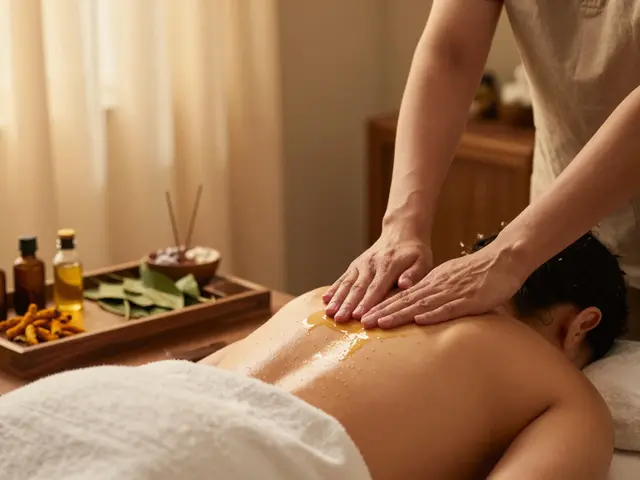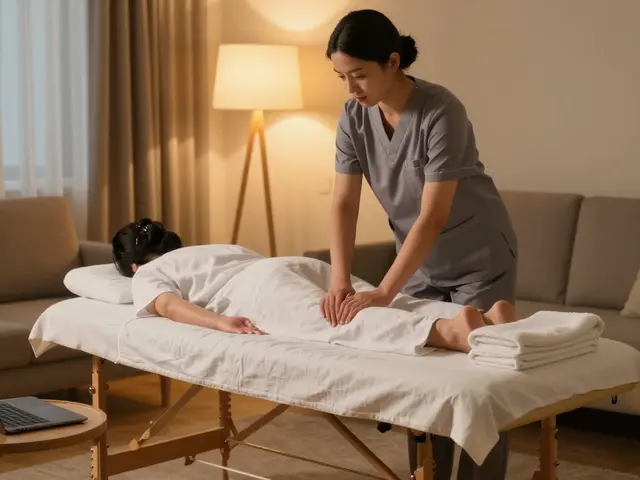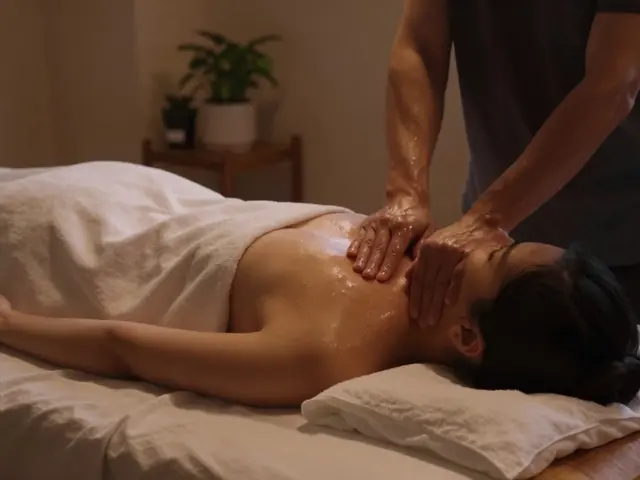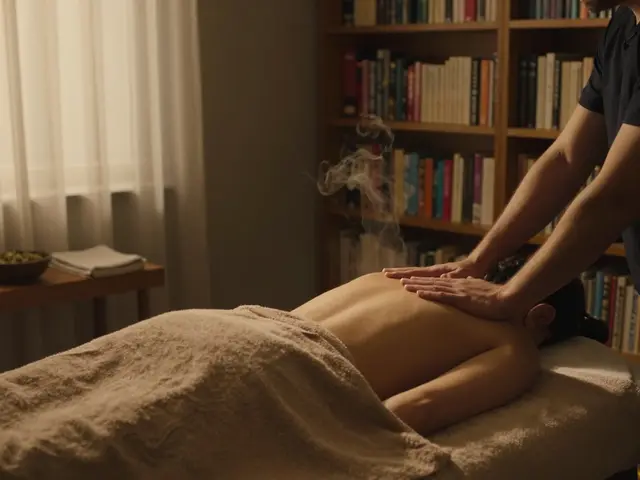Every Londoner knows the city runs at a breakneck pace—it’s endless movement, crowded tubes, and the constant buzz of phones in pockets. You rarely catch a moment to breathe, let alone to care for your battered body and frayed mind. Yet, tucked away in corners that glow with low golden light and the faint scent of lemongrass, Thai massage therapists are quietly changing the game for urban wellness. This isn’t your run-of-the-mill rubdown; it’s part science, part art, and, frankly, a bit magic. Call it ancient wisdom with modern swagger. If you haven’t tried London’s premier Thai massage, you might be missing a powerful path to repair, refresh, and reset—inside and out.
Thai Massage: The Roots and Reach Beyond Relaxation
Most people think of a massage as lying face down and drifting off while someone kneads your shoulders. Thai massage flips that script. For starters, you’ll stay clothed in loose, comfy gear, and it’s as much about movement as it is about being worked on. Thai massage traces back over 2,500 years to Buddhist monks, who believed in treating the body through a spirited combination of pressure, stretching, and energy line work. They called these energy lines ‘Sen’, and they mapped out ten primary lines crisscrossing the body. The techniques blend Indian Ayurvedic principles, traditional Chinese medicine, and even yoga-like stretches.
What does that actually mean for your knotted muscles and your overclocked mind? Instead of just coaxing your muscles to relax, the therapist strategically applies palming, thumb pressure, and deep stretches, targeting those Sen lines for restored energy flow. A study in the Journal of Bodywork and Movement Therapies (2022) highlighted improved flexibility, reduced muscle soreness, and a boost in both serotonin and endorphins after only a single session of authentic Thai massage.
And here’s something that might surprise you: professional Thai massage in London isn’t just the domain of spa seekers or holistic health buffs. Athletes, busy executives, new mums—people from all walks of life are jumping on the trend. Some London clinics report that men now make up nearly 50% of their regular clientele, smashing the old idea that massage is a women’s wellness activity. In fact, if you peek inside one of London’s top Thai spas on a Tuesday evening, you’ll probably spot suited-and-booted professionals swapping stories about their favorite therapists, just as often as you’d overhear talk of the best flat whites nearby.
But the deeper impact goes far beyond flexibility and banishing sore spots. Clients often say they walk out with minds calmer, patience restored, and even migraines and period pain lessened. That’s because the therapy nudges your nervous system out of fight-or-flight mode, while also getting your blood and lymph moving—no prescription required.
The Science—And the Secret Sauce—of Thai Massage
What makes Thai massage stand out in a city that already has every spa gimmick going? The short answer: it’s both physical and energetic. The therapist uses their palms, thumbs, elbows, knees, and even feet, moving your limbs in rhythmic, yoga-like stretches. They literally lean into your body, leveraging their own weight instead of relying on brute strength. This means you’re less likely to walk away bruised or overly sore—even after a deep-tissue session.
Let’s talk about those Sen lines a bit more. While Western medicine focuses on muscles and joints, Thai massage practitioners act like mechanics tuning up your whole energy system. Whether or not you buy into the energetics, modern research has found that proactive stretching and acupressure relieve tension, lower anxiety, and help the body repair after stress. In one clinical trial published in BMC Complementary Medicine (2021), participants receiving weekly Thai massage reported 38% lower anxiety scores and a meaningful drop in chronic back pain compared to a control group getting routine Swedish massage.
Somebody asked me whether you need to be super flexible (or terribly brave) to book a Thai massage session. Not at all. Good therapists work with your body—not against it—and will adapt stretches if you’ve got old injuries or tightness. The best London therapists keep a careful eye on your breathing and always ask if something feels too intense. It’s not a contest in contortionism; it’s about tuning in and letting go.
People also wonder: will I really feel different afterward, or is it a placebo because I expect to feel good? The data says it’s more than wishful thinking. Heart rate and cortisol (that stress hormone that keeps you wired and tense) drop measurably after just an hour, according to a 2019 study published in the European Journal of Integrative Medicine. Sleep improves too—one London client tracked her sleep metrics on her smartwatch for a month and saw a striking 17% increase in deep sleep on days she had Thai massage, compared to regular days.
Let’s put some actual numbers side by side:
| Benefit | Thai Massage | Standard Swedish Massage |
|---|---|---|
| Improve Flexibility | Up to 40% in 4 weeks | Up to 20% in 4 weeks |
| Lower Anxiety (Reported) | 38% reduction | 24% reduction |
| Increase Deep Sleep | 17% avg. increase | 8% avg. increase |
| Mood Boost (Serotonin) | Significant rise after 1 session | Moderate rise |
There’s also a unique social dimension in London—some spas offer group or couple sessions, which can build trust, dissolve awkwardness, or just turn self-care into a shared experience. Not everyone is comfortable with deep pressure or full stretching though. If you’re new, ask for a gentler first session. Communication is everything with a good Thai therapist.

The London Difference: Where Tradition Meets Urban Life
London’s Thai massage scene is a true cultural mashup. Many therapists trained in Thailand, sometimes at the iconic Wat Pho temple school, before setting up shop in the UK. They bring with them both tradition and a London twist. You’ll see spas decorated with lacquered wood, lotus motifs, and the sound of gentle Thai music—but you’ll also sip post-massage tea while overlooking the Gherkin or St. Paul’s, right in the heart of the city.
But how do you spot the best from the rest? London’s most trusted Thai massage clinics are certified by the Federation of Holistic Therapists (FHT) or the Thai Healing Alliance. Their therapists display both a warm bedside manner and a firm grip. Check their reviews: real clients mention things like customized sessions and attention to problem areas—not just a generic ‘felt great’ comment.
Some high-end spas in Central London use silk pyjamas for clients and feature private suites, aromatherapy options, and even fusion treatments that blend deep Thai techniques with Swedish oil massage or reflexology. If privacy and peace are your thing, those spots are worth the splurge. Still, the east and south London neighborhoods have family-run clinics with loyal followings—where you’re remembered by name, and your favorite herbal balm is waiting every visit.
One thing: you won’t get a better result by picking the priciest option or the one closest to your office. Book a tester session and listen to your body. A truly great therapist will adjust techniques based on your energy, pain points, and even how you slept the night before. The connection matters more than the décor.
Another London twist is access—many spas open late or even overnight, catering to shift workers and jet-lagged visitors. Same-day bookings are common, but top therapists can be booked up days or weeks ahead—so plan ahead if you want a peak evening slot.
Making Thai Massage Work for Your Wellness Routine
You don’t have to treat Thai massage like a luxury reserved for special occasions. Many Londoners book regular sessions as part of their normal self-care—just like a gym membership or therapy appointment. The sweet spot is every 2-3 weeks for maintenance, though weekly sessions are best for high stress or acute pain. Stretching daily at home between appointments helps the benefits last even longer.
Here are a few tips if you want to get the most from your session:
- Wear soft, stretch-friendly clothes—most clinics provide these, but check the policy in advance.
- Communicate openly about injuries, stress levels, or what you need from the treatment. The more your therapist knows, the better they can tailor the session.
- Don’t rush off post-session—spend a few minutes sipping water or herbal tea to help your body transition.
- For first-timers, let the therapist guide the pace, and don’t be shy about speaking up if a stretch feels too intense.
- If you enjoyed a particular move, ask what it’s called. Many therapists are happy to teach a short home stretch you can use between sessions.
One secret not often shared: book your appointment after a workout or long day at your desk. The massage will help shift out lactic acid, reduce next-day soreness, and make sleep come easier. Remember—not all stress is physical. Thai massage is famous for lifting emotional tension as well. Make it part of your mental health toolkit.
Londoners who include Thai massage as part of their wider wellness routine—mixing it with walking, breathwork, yoga, or even mindfulness apps—report consistently higher satisfaction and energy week to week. As the world tilts into even busier times post-pandemic, finding a hands-on, human-first wellness solution beats staring at screens or popping unnecessary pills.
The next time your shoulders are tense, your mind’s buzzing, or you’re just feeling disconnected from your body, skip the scrolling and book a session. You might just find your “reset” button has been waiting in a back street spa or beneath fragrant palms, delivered by skilled Thai hands right in the heart of London’s frenzy. Authentic healing is closer—and more accessible—than most people realize.








